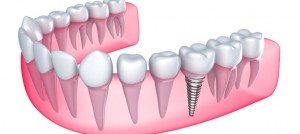 A dental implant is a life-changing option for anyone who has lost their teeth. For people suffering from dentures and bridges, the good news is that dental implants can overcome all the shortcomings. Dental implants are the best replacement method that lasts forever, functions and looks like any other natural teeth.
A dental implant is a life-changing option for anyone who has lost their teeth. For people suffering from dentures and bridges, the good news is that dental implants can overcome all the shortcomings. Dental implants are the best replacement method that lasts forever, functions and looks like any other natural teeth.
Dental implants cost in Sydney, being affordable and highly successful replacement method, it has some complications to be considered before opting.
Complications Of Dental Implants And Ways To Overcome Them:
-
Infection Resulting In Poor Healing:
Like any surgery, dental implants are also susceptible to infection. Usually, dentists use sterile and aseptic techniques during any oral surgery. Discuss and make sure what equipment’s your surgeon uses. Normally discomfort for two or three days after the procedure is common, but it persists longer visit your surgeon.
Follow the aftercare tips correctly and take all the prescribed antibiotics.
-
Medical Conditions Affect Healing:
In general, if you lose a tooth and your gums and bones are fit you are a potential candidate for a dental implant. But certain conditions and diseases will decide if the procedure is right for you. To determine this, a proper medical assessment is crucial before starting the procedure.
Conditions such as diabetes, alcoholism uncontrolled gum disease, and various other conditions can affect your body’s healing process and whether the implant will fuse to your bone. These are not an absolute contraindication, but steps should be taken to ensure that you heal fully.
Make sure you discuss the medications you are currently taking and the ones you are allergic to with your surgeon, to avoid complications.
-
Surgical Technique:
When you go for affordable or relatively cheap dental implants in Sydney, if the bone is overheated, it leads to necrosis, and the implant will fail to integrate with the bone. This is more likely to happen if the bone density is deficient or dense. Make sure you visit an experienced surgeon who is skilfully trained. If the technique goes wrong, the site is prone to infection resulting in swelling and pain and rejection of the implant.
-
Micro-Movement Of Dental Implants:
The implants should remain immobile for an extended period to promote Osseointegration. Like any fractures, the implants must be given some time to heal. If there is movement, the implant will not heal. In General, if the implant is moved during the first 8 to 12 weeks, the bone will not grow along the sides of the implant.
-
Lack Of Bone:
Affordable dental implants in Sydney, to be successful, the bone must grow around the implant. If the bone is deficient in height or width, some measures must be taken to promote its growth against the implant. For instance, if you have lost a tooth and have not replaced it for a long time, then the bone in that area will lose its volume. Your implant surgeon must be skilful, to promote bone growth either by grafting or by manipulating the site.


